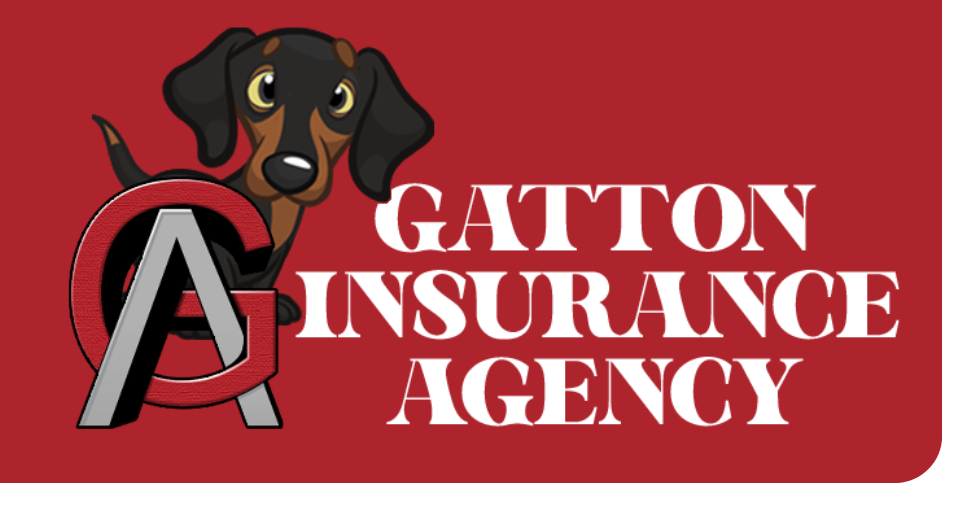Introduction to Life Insurance
Life insurance is a financial tool designed to provide monetary support to beneficiaries upon the policyholder’s passing. It functions as a safety net for families and individuals, ensuring that financial obligations such as mortgages, education costs, and daily living expenses are met even in the event of an untimely death. The necessity of having life insurance is particularly relevant in Indiana, where residents may face unique financial challenges and considerations.
There are primarily two types of life insurance: term life insurance and whole life insurance. Term life insurance offers coverage for a specific period, usually ranging from 10 to 30 years. During this time, if the insured passes away, the beneficiaries receive the death benefit. This type of insurance is often more affordable, making it an attractive option for Indiana families looking to secure financial support without a long-term financial commitment.
On the other hand, whole life insurance provides coverage for the entirety of the insured individual’s life, as long as premiums are paid. This form of insurance not only offers a death benefit but also accumulates cash value over time, making it a dual-purpose financial instrument. Whole life insurance can be appealing to those looking for lifelong coverage and a way to build wealth. As residents of Indiana evaluate their insurance options, understanding the distinctions between these two types becomes crucial for effective financial planning.
Life insurance is not just a product; it is a strategic decision that impacts both immediate and long-term financial security. Gaining a thorough understanding of term and whole life insurance will empower Indiana residents to make informed choices that align with their specific needs and aspirations. Consultation with an insurance agency, like The Gatton Agency, can provide valuable insights tailored to individual circumstances.
Understanding Term Life Insurance
Term life insurance is a straightforward and popular option for individuals seeking temporary coverage in Indiana. This type of insurance policy is structured to provide financial protection for a specified period, commonly termed as 10, 20, or 30 years. This arrangement ensures that should the insured pass away within the term, their beneficiaries will receive the death benefit, aiding in financial stability during challenging times.
A key feature of term life insurance is its affordability, making it an appealing choice for Indiana residents who may want a safety net without breaking the bank. Premiums for term life policies are generally lower compared to whole life insurance, enabling policyholders to maintain coverage at a reasonable cost. The simplicity of the term life insurance structure contributes to its attractiveness; straightforward coverage can be appealing, especially for those who may be new to insurance shopping.
At the conclusion of the policy term, the insured has a couple of options. They may choose to renew the policy, typically at a higher premium based on their current age, or let the coverage lapse. Unlike whole life insurance, which builds cash value, term life insurance does not accumulate any cash benefits, focusing solely on providing a death benefit for the duration of the policy. This makes it less complex but also means it is better suited for individuals with specific, time-limited coverage needs.
Common use cases for term life insurance include covering a mortgage, securing children’s education costs, or simply providing a financial cushion for dependents during working years. The Gatton Agency, a trusted name in Indiana insurance, offers expert guidance to residents to find the right coverage tailored to unique life circumstances. In understanding term life insurance, individuals can make well-informed decisions that align with their financial goals and family protection needs.
Exploring Whole Life Insurance
Whole life insurance is a type of permanent insurance that provides coverage for the insured’s entire lifetime, as long as premiums are paid. This type of insurance is particularly relevant for Indiana residents seeking financial security for their families. One of the significant advantages of whole life insurance is its cash value component, which accumulates over time and can serve as a financial asset. Unlike term insurance, which offers coverage for a specific period, whole life policies contribute to savings while providing lifelong protection.
The cash value of a whole life policy grows at a guaranteed rate and can be accessed through policy loans or withdrawals. This aspect can provide financial flexibility during emergencies or opportunities, offering policyholders a unique way to leverage their insurance as a wealth-building tool. Moreover, many whole life insurance policies also offer the potential for dividends, which can be reinvested into the policy to increase the cash value or reduce premium payments, further enhancing the benefits associated with the policy.
It is essential to recognize that securing a whole life insurance policy requires a long-term commitment, generally involving higher premiums than term policies. However, for many Indiana residents, the assurance of lifelong coverage and its dual function as an investment can outweigh the initial costs. Whole life insurance not only helps in meeting end-of-life expenses but can also leave a legacy for one’s family, ensuring financial stability for loved ones. This dual purpose makes whole life insurance an attractive option for those looking to establish a safety net and accumulate wealth over time.
In conclusion, whole life insurance presents a robust option for individuals and families in Indiana, combining protection and investment in a single policy. Understanding its features and benefits can be instrumental in making informed decisions about insurance needs and long-term financial planning.
Comparison of Benefits: Term vs. Whole Life
When choosing between term and whole life insurance, it is essential for Indiana residents to understand the unique benefits and drawbacks of each type to make informed decisions based on their specific situations. A primary distinction is the coverage duration. Term insurance provides coverage for a predetermined period, typically ranging from 10 to 30 years. This option is often favored for its affordability, as premiums tend to be significantly lower compared to whole life policies, making it suitable for younger families or individuals seeking temporary financial protection. However, once the term expires, coverage ceases unless the policyholder opts for renewal, which may entail higher rates.
Conversely, whole life insurance offers lasting coverage for the policyholder’s lifetime, as long as premiums are paid. This type of insurance accumulates cash value over time, which can be leveraged or borrowed against, presenting a financial asset that can benefit Indiana residents in various ways. Nonetheless, the cost of whole life policies is considerably greater, potentially making them less accessible for some individuals. The higher premium rate reflects both the lifelong coverage and the benefit of cash value accumulation.
Flexibility is another point of comparison. Term insurance typically lacks cash value, limiting the options for policyholders once the term ends. However, some individuals may not require lifelong coverage, making term insurance a valid choice for those who want to safeguard against specific financial obligations, such as a mortgage or children’s education, for a defined length of time. Whole life insurance, while more expensive, offers candidates the ability to build savings while providing lifelong security for beneficiaries. In conclusion, the decision between term and whole life insurance ultimately hinges on the individual’s or family’s financial needs and objectives. Each policy type presents advantages and disadvantages that must be weighed accordingly to find the best fit for varying circumstances.
Factors to Consider When Choosing Between Term and Whole Life Insurance
When navigating the complex landscape of life insurance, Indiana residents must take several critical factors into account to determine whether term or whole life insurance best suits their needs. Each type of policy offers distinct advantages, making individual circumstances pivotal in the decision-making process.
Firstly, age plays a significant role in insurance selection. Younger individuals often find term insurance to be a budget-friendly option, providing adequate coverage at a lower initial cost. As individuals age, however, their insurance needs may evolve, necessitating a more robust financial product such as whole life insurance, which offers lifelong coverage and a cash value component. Understanding how age influences coverage requirements is crucial for Indiana residents.
Secondly, financial goals and aspirations should be carefully considered. For instance, those focused on ensuring their family’s financial security during their working years may opt for term insurance, which can provide substantial coverage for a specific while committing to lower premiums. Conversely, whole life insurance caters to long-term financial planning, integrating a savings element that can be beneficial in retirement or as a financial legacy for one’s heirs.
Family situations also dictate insurance choices. Individuals with dependents or substantial debt may prioritize acquiring term insurance, which is often more affordable and offers greater coverage during critical years. Alternatively, individuals without financial dependents might weigh the advantages of accumulating cash value through a whole life policy as part of a comprehensive financial strategy.
Finally, budget constraints cannot be ignored. Term life insurance generally has lower premiums, making it more accessible for those with limited financial resources. In contrast, the long-term commitment of whole life insurance entails higher premiums, which may require a reevaluation of personal finances to accommodate this expense.
In conclusion, selecting between term and whole life insurance necessitates a thorough analysis of individual circumstances, including age, financial goals, family dynamics, and budget constraints. Indiana residents must evaluate these factors thoughtfully to ensure they choose the insurance type that aligns with their unique needs and objectives.
Common Misconceptions About Life Insurance
Life insurance, whether term or whole, is often clouded by a myriad of misconceptions that can hinder individuals from making informed decisions. One prevalent myth is that life insurance is prohibitively expensive. In reality, the cost of insurance can vary significantly based on personal circumstances, age, health, and the type of coverage chosen. For many Indiana residents, term life insurance offers an affordable solution, providing essential protection without the high premiums often associated with whole life policies. By shopping around and consulting with local experts such as The Gatton Agency, individuals can find plans that fit their budgets.
Another common misunderstanding is the complexity of life insurance products. Many people believe that navigating the terms and conditions of insurance policies is too difficult. While it’s true that life insurance can involve terms that may seem daunting, resources are available to help demystify the process. Professional agencies like The Gatton Agency can offer guidance and simplify the details, making it easier for Indiana residents to understand their options. It’s crucial to remember that educating oneself about the differences between term and whole life insurance can empower individuals to make choices that align with their financial goals and family security.
Additionally, some view life insurance as an unnecessary expense, often believing that the money spent on premiums could be better allocated elsewhere. This perception can lead to the exclusion of a critical safety net for loved ones. In reality, life insurance serves as a vital component of financial planning for many families, providing peace of mind in the event of unexpected circumstances. As such, understanding the benefits of life insurance in building a secure future is fundamental for Indiana residents. Clarity around these misconceptions is essential, allowing individuals to recognize the value of life insurance as an investment in their loved ones’ security.
How to Purchase Life Insurance in Indiana
Purchasing life insurance in Indiana can be a straightforward process, provided you approach it methodically. The first step is to evaluate your individual needs. Consider factors such as your financial obligations, family dynamics, and future goals. This assessment will help you determine whether term or whole life insurance is more suitable for your situation. For instance, if you need coverage for a specific period (like the duration of a mortgage or education for your children), term insurance may be more appropriate. Conversely, if you desire lifelong protection and potential cash value accumulation, whole life insurance is worth considering.
Once you have a clear understanding of your needs, the next step is to compare various policies and their associated costs. Look closely at the coverage amounts, premiums, and benefits offered by different insurers. Utilizing comparison tools available online can facilitate this process. Additionally, the review of customer testimonials and ratings of different life insurance products can provide valuable insights as you assess your options.
Finding reputable insurers is crucial in this process. In Indiana, you can consult resources such as the Indiana Department of Insurance, which monitors insurers and can assist in verifying their legitimacy. Seek insurers with a strong financial standing and positive customer service records. The Gatton Agency, a known entity in Indiana, can help residents navigate their life insurance choices, ensuring that the policies align with individual and family needs.
Finally, understanding the application process is vital. Typically, applying for life insurance involves filling out a detailed application form, which may require medical information, and possibly undergoing a medical exam. Be aware of any specific Indiana regulations that may affect underwriting practices, including state mandates regarding disclosure of information. Careful preparation and understanding of these steps will facilitate a smoother purchase experience.
Frequently Asked Questions
1. What is the difference between term and whole life insurance?
Term life insurance provides coverage for a specific period, often 10, 20, or 30 years, and pays a benefit only if the insured passes away during that term. Whole life insurance, on the other hand, is a permanent policy that offers coverage for the insured’s entire life, along with a savings component that accumulates cash value over time. This fundamental distinction is crucial for Indiana residents evaluating their insurance needs.
2. Which type of insurance is more affordable for Indiana residents?
Term life insurance is typically more affordable than whole life insurance. The lower premiums of term policies appeal to many Indiana residents looking for cost-effective options to secure financial protection for their families. However, it is essential to compare both types based on individual needs before making a decision, as the long-term costs can vary significantly.
3. Can I convert my term policy into a whole life policy?
Many insurance providers, including The Gatton Agency, offer policies that allow for conversion from term to whole life insurance. This means that Indiana residents can start with a more affordable term policy and later convert it to a whole life policy without undergoing a medical exam, provided certain conditions are met. Always check the specifics of your policy to understand the available options.
4. What happens if I outlive my term life insurance policy?
If you outlive your term policy, coverage ends, and no benefit is paid out. However, many issuers provide an option to renew or convert your policy at the end of the term, sometimes at higher premiums. Indiana residents should consider their long-term needs and whether they might want to secure a policy with a payout irrespective of when they pass away.
5. How do I choose the right policy for me?
Choosing between term and whole life insurance depends primarily on your financial goals, family needs, and budget. Key factors to consider include your current financial responsibilities, how long you need coverage, and whether you want an investment component. Consulting with professionals such as The Gatton Agency can help you assess your situation and find the appropriate insurance solution.
Conclusion and Final Recommendations
Throughout this discussion on term versus whole life insurance, we have explored critical factors that Indiana residents should consider when determining the most suitable insurance option for their unique circumstances. Term life insurance offers a straightforward, cost-effective solution for individuals seeking coverage over a specified period, typically 10 to 30 years. This type of insurance is particularly appealing to those who anticipate lower coverage needs as they progress through life stages, such as raising children or paying off significant debts.
On the other hand, whole life insurance provides lifelong protection, accompanied by a cash value component that grows over time. This policy type is ideal for individuals planning for long-term stability and investment, offering an opportunity for wealth accumulation while ensuring peace of mind regarding their beneficiaries’ financial security. The Gatton Agency can help Indiana residents evaluate the appropriate balance between these two insurance types based on personal financial goals and family needs.
As you reflect on your personal situation, consider your current financial obligations, future goals, and how each insurance option aligns with those priorities. Both term and whole life insurance have their merits; ultimately, the best choice varies from person to person. It is crucial to gather information and insights that inform your decision-making process.
We recommend consulting experienced financial advisors or insurance specialists to explore the intricacies of different policies actively. They can provide tailored advice that encompasses your financial status and future aspirations, ultimately guiding you toward the best fit for your life insurance needs. Careful consideration and professional guidance will ensure you make informed decisions in this essential aspect of financial planning.






